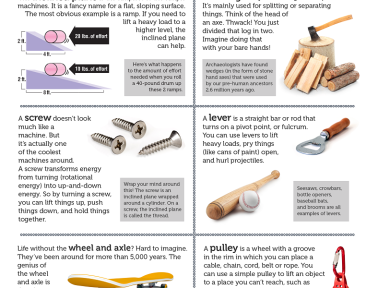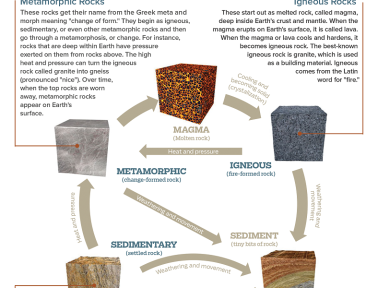Long before the technology existed to permit us a real-time view inside the developing brain, a Swiss psychologist by the name of Jean Piaget discovered the developmental patterns behind language and cognition in childhood years. As one of one of the most influential developing psychologists of the 20th century, he was a prolific author as well as a leader in offering a developing context to the human tasks of assuming and also finding out.
Eager observation was one of Piaget’s presents, so it’s not unusual that he rapidly discovered a fad among the Americans he talked to. It was a question that tackled numerous types, but constantly concentrated in from the exact same viewpoint. The inquiry ended up being so typical that he referred to it merely as “the American concern”. After offering his job, a detailed structure presenting exactly how perception and also cognition advance as a child develops, Piaget could rely on an American elevating the question, “Yes, but exactly how can we obtain them to do it quicker?“
The concern must have been irritating to a man that seemed to enjoy the slow percolation of thought. This was a man who frequently wore hobnailed treking boots– even to function– because the strolls he absorbed the foothills of the Alps to mentally untangle new principles were so common. Kid psycho therapist Dr. David Elkind remembered as soon as “playing hooky” from a seminar in The golden state, leaving the organized events to delight in the charm of the nearby beach instead. Upon his arrival, he discovered Piaget had slipped out of the meeting also, clarifying to his buddy that he had actually pulled back to the coastline “on the track of an idea.”
This winding procedure of understanding was mirrored in the Piagetian concept that the mistakes youngsters made in intelligence examinations did not in fact show an inferior intelligence; the errors simply showed they went to a different factor on the course of thought. Asking Piaget if there was anything Americans can do to help their kids move along faster have to have landed regarding the same as asking if there was any type of means he can reduce his everyday strolls.
Piaget inevitably responded to “the American question” with an earnest counter-question: “Is it a good idea to speed up …?”Piaget yielded that probably youngsters can doing tasks earlier, yet questioned whether that was the most preferable objective. He was reestablishing the timeless inquiry of whether education’s worth is just in its product alone or likewise in its process– or maybe more pointedly, whether we can genuinely have an item at all without that untidy, time-sucking procedure.
It’s suitable that Piaget’s work itself shows the need for that lengthy and also winding roadway. His very early research approaches would not pass scrutiny by today’s standards as well as the job he spent decades of his life producing definitely can not stand alone as an end product in the 21st century. His mistakes were not an indication of lower knowledge, just that the science was at a various factor on its trip. Piaget’s work smashed assumptions and began the rough-hewn phase of a sculpture that researchers have spent years improving with more precise tools. The procedure he provided his life to– the weaves, mistakes and also explorations– remains to serve as a crucial strengthen to the work of developmental psychology today. His name dots the literary works and also his fingerprints are throughout present research studies. Yes, yet could we get here where we remain in cognitive science quicker?No. Despite his job’s shortcomings, we couldn’t get where we are currently without Piaget. The procedure continues to lead us to the item.
Jean Piaget died in 1980, however the American inquiry sustained, as did the Piagetian reaction from lots of that questioned whether quickening always corresponded getting ahead. For the four decades that have followed, it appears that the American concern has become the American experiment.
” Just how can we obtain them to do it much faster?”
This experiment has been most extensively recorded in preschool. Some instructors as well as moms and dads have actually observed that in pushing content down, numerous staples of early childhood years were simply being pushed out. They reported the loss of dress-up areas, sand tables, and blocks (some literally thrown away with the trash). Recesses and also cost-free play were lowered or removed altogether. The buzzwords of “exploration” and “curiosity” seemed to be changed by “standardization” and “roughness“.
Whether the pressure was originating from the colleges to the parents or the other way around, by the very early 2000s it was commonly acknowledged that preschool had simply become the new first grade. It had not been till 2016 that scientists place the claim to an empirical test.
University of Virginia scientists, Daphna Bassok, Scott Latham, and also Anna Rorem took existing data regarding preschool educators’ beliefs and also methods and compared the responses from 1998 with those from 2010. The scientists expected to locate a change but mentioned that also they were surprised to see how noticable it truly was. Among other markers, they found a dramatic movement towards raised reading, composing, and math assumptions, boosted worksheet and also flashcard use, as well as a reduction in play and also exploration, highlighted by the significant decrease in making use of sensory tables, dress-up areas, science tasks, and also art tasks.
Clearly, discovering as well as play do not have to live a mutually unique presence. As Dr. Bassok commented in reflecting on her group’s study, ” It definitely doesn’t need to be an ‘either/or’ situation, where academics crowd out whatever else, but I stress that in technique, this is what is happening in numerous classrooms.”
Piaget’s question comes ringing back. ” Is it a good idea to increase?Possibly what has actually been observed in this American experiment is exactly what he was warning versus when he addressed the American inquiry. If speeding up methods throwing out the structure, who does it actually benefit?
Referrals:
Bassok, Daphna, et al. “Is Kindergarten the New First Grade?” AERA Open, Jan. 2016, doi:10.1177/ 2332858415616358.
Bliss, Joan. “Looking Back: Recollections of Jean Piaget.” Looking Back: Recollections of Jean Piaget|The Psychologist, The British Emotional Society, May 2010.
Breen, Audrey. “U.Va. Researchers Find That Preschool Is the New First Grade.” UVA Today, College of Virginia, 29 Jan. 2014, news.virginia.edu/content/uva-researchers-find-kindergarten-new-first-grade.
Curwood, Jen Scott. “What Took place to Preschool?” Teacher, vol. 117, no. 1, Aug. 2007, pp. 28– 32.
Elkind, David. Giants in the Nursery: a Biographical Background of Developmentally Proper Method. Redleaf Press, 2015.
Hall, Elizabeth. “A Discussion with Jean Piaget as well as Barbel Inhelder.” Psychology Today, 3, 25-32, 54-56, 1970.
More from Not Just Adorable: The Essential Significance of a Strong Structure: Why Very Early Understanding Issues Keep them Passionately Interested On Developmentally Suitable Practice and Why We Don’t Push
Children Down the Stairways Talking and
Educating: Online or In-Person( when readily available )Relevant










